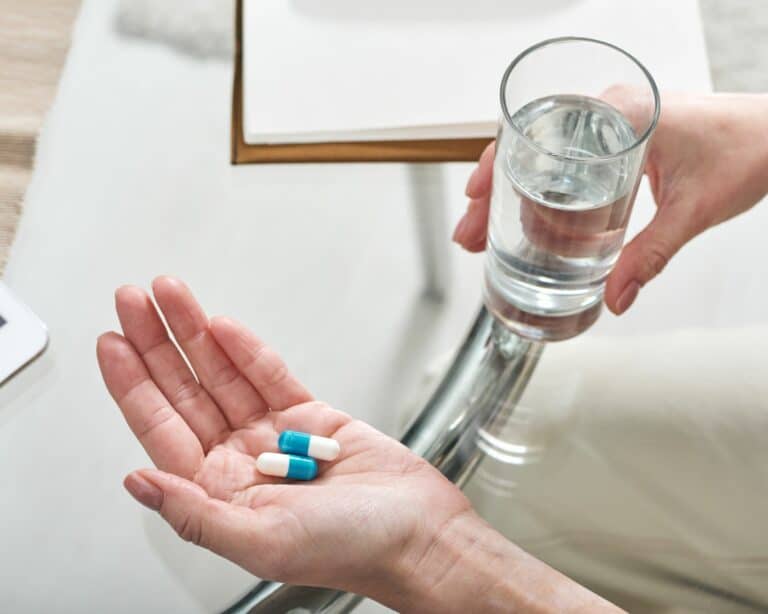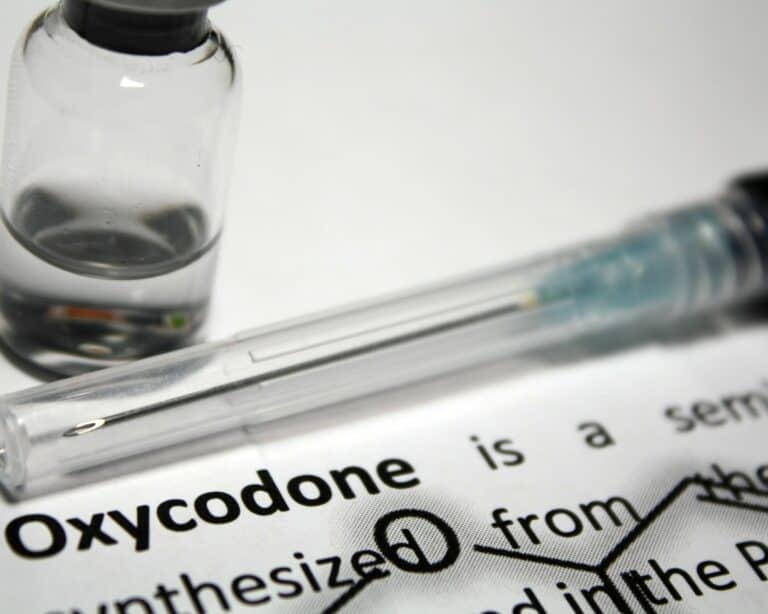Medical Detox
Medical detox is more than just purging the body of substances; it involves carefully managed medical strategies to address intoxication and mitigate life-threatening withdrawal symptoms from drugs like alcohol, opioids, and sedatives. Our articles delve into the evaluation and stabilization of symptoms, whether in an inpatient or outpatient setting and emphasize the critical step of transitioning into aftercare programs to sustain recovery.

Can You Stop Xanax Cold Turkey?
Xanax (alprazolam) is a brand-name prescription drug that is used to treat anxiety and panic disorders. It is a short-acting…

What to Know About Adderall Withdrawal
Adderall is a prescription medication used to treat attention deficit hyperactivity disorder (ADHD) and narcolepsy. It contains a combination of…

What is the Best Way to Treat Alcohol Withdrawal?
If you drink a lot of alcohol for several weeks, months, or years in a row, you may be both…

Ativan Withdrawal Symptoms, Timeline, and Treatment
Ativan is the brand name for a less potent benzodiazepine, medication called lorazepam which is a schedule iv drug. Lorazepam…

Benzodiazepine Detox Center in Massachusetts
What are Benzodiazepines? Benzodiazepines are prescription drugs often intended to treat anxiety and seizure disorders. Sometimes, these substances are also…

What to Look for in a Boston Drug and Alcohol Detox Center
Drug addiction and alcoholism are common issues in the United States. According to the Centers for Disease Control and Prevention…

How to Find a Medication-Assisted Treatment (MAT) Center Near You
Medication-assisted treatment (MAT) is a type of addiction treatment that combines FDA-approved medications like Suboxone and Vivitrol with a comprehensive…

5 Complications of Alcohol Withdrawal and How a Detox Center Can Help
Alcohol Withdrawal Syndrome Alcoholism is a serious problem in the United States, with nearly 15 million people aged 12 or…

What is the Difference Between Detox and Rehab and Which One is Right for Me?
According to the National Institutes of Health, 10% of the U.S. population has suffered from addiction at some point in their lives.…

Can I Quit Using Heroin Cold Turkey?
Heroin, a potent and highly addictive opiate drug, poses significant risks to those who use it. Individuals who engage in…

Hydrocodone Withdrawal Timeline, Symptoms, and Detox Treatment
Hydrocodone is a prescription opioid medication that is prescribed to treat the symptoms of pain. While hydrocodone is effective in…

What is Prescription Opioid Detox Like in Massachusetts?
Prescription opioids are medications prescribed to treat mild to severe cases of pain. While these medications are effective in reducing…

Methadone Withdrawal Symptoms, Timeline, and Treatment
Methadone is a long-acting synthetic opioid medication that plays a pivotal role in the management of opioid use disorder and…

Meth Withdrawal Timeline, Symptoms, and Detox Treatment
Methamphetamine is a potent and highly addictive stimulant drug. According to the Natural Institute on Drug Abuse, “Among people aged…

How to Find an Alcohol Detox Center in the Boston Area
Alcohol abuse takes a toll on your physical and mental health and can keep you from taking care of your…

Opioid Withdrawal Timeline, Symptoms, and Detox Treatment
Opioid addiction is a serious problem in the United States, so much so that it has been declared a public…

Xanax Withdrawal Timeline, Symptoms, and Detox Treatment
Xanax (alprazolam) is the most widely prescribed benzodiazepine medication in the United States. It is prescribed to treat anxiety disorders…

What is Lucemyra (Lofexidine) and How Can it Treat Opioid Addiction?
Prolonged periods of opioid use or abuse can lead to changes in your body and brain. Over time, your body…

How to Choose a Fentanyl Detox Center in the Boston Area
Fentanyl is a powerful synthetic opioid drug that is 50 times stronger than heroin and 100 times stronger than morphine.…

Fentanyl Withdrawal Timeline, Symptoms, and Detox Treatment
What is the Fentanyl Withdrawal Timeline? How long fentanyl withdrawal timeline lasts varies from person to person depending on a…

When Can I Start Taking Suboxone During Detox?
Suboxone is a brand-name prescription drug containing buprenorphine and naloxone.[1] It is prescribed to help people overcome opioid use disorder.…

Top 4 Reasons it is a Bad Idea to Detox From Opioids at Home
Opioid addiction is a major problem across the United States. More than three million U.S. citizens are thought to have…

How Can an Alcohol Detox Center in Massachusetts Help Me Sober Up?
Alcohol abuse is a serious problem across the United States. Studies show that up to 50% of Americans drink alcohol…

What are Alcohol Withdrawal Shakes and Can a Detox Center Help Them Stop?
Alcoholism is a progressive and chronic disease that can cause an array of health issues. When someone is addicted to…

Six Myths About Medication-Assisted Treatment (MAT): Debunked
Medication-assisted treatment, commonly known as “MAT,” is the combination of FDA-approved medications, behavioral therapy, and counseling that aims to provide…

Most Dangerous Drugs to Detox From and How a Medical Detox Center Can Keep You Safe
When you become addicted to a substance, your body and mind become dependent on that drug. If you attempt to…

Oxycodone Withdrawal Timeline and How a Medical Detox Center Can Help
According to the U.S. Department of Justice, more than 13 million Americans abuse oxycodone every year.[1] Oxycodone is an opioid…

What Medications Can Help Me Cope With Heroin Withdrawal?
Heroin addiction is a chronic and progressive disease that affects many Americans. According to the National Institute on Drug Abuse,…

Heroin Withdrawal Timeline, Symptoms, and How a Detox Center Can Help
An addiction to heroin can ruin people’s lives. Over the course of their addiction, they can lose their friends, families,…

What is Opioid Detox Like in Massachusetts?
Opioids are a class of drugs that include natural, synthetic, and semi-synthetic prescription painkillers and illicit drugs, including heroin, fentanyl,…

The Dangers of Getting Sober Without Rehab
Addiction is a chronic and progressive condition that requires professional treatment. Nationwide surveys show that nearly 10% of U.S. adults…

Alcohol Withdrawal Timeline: How Long Alcohol Detox Takes
Making the decision to stop drinking and go to an alcohol rehab near you is one of the most important…

Medications Used to Treat Opioid Use Disorder
According to the National Institute on Drug Abuse, people who struggle with opioid use disorder who go to detox without…

































